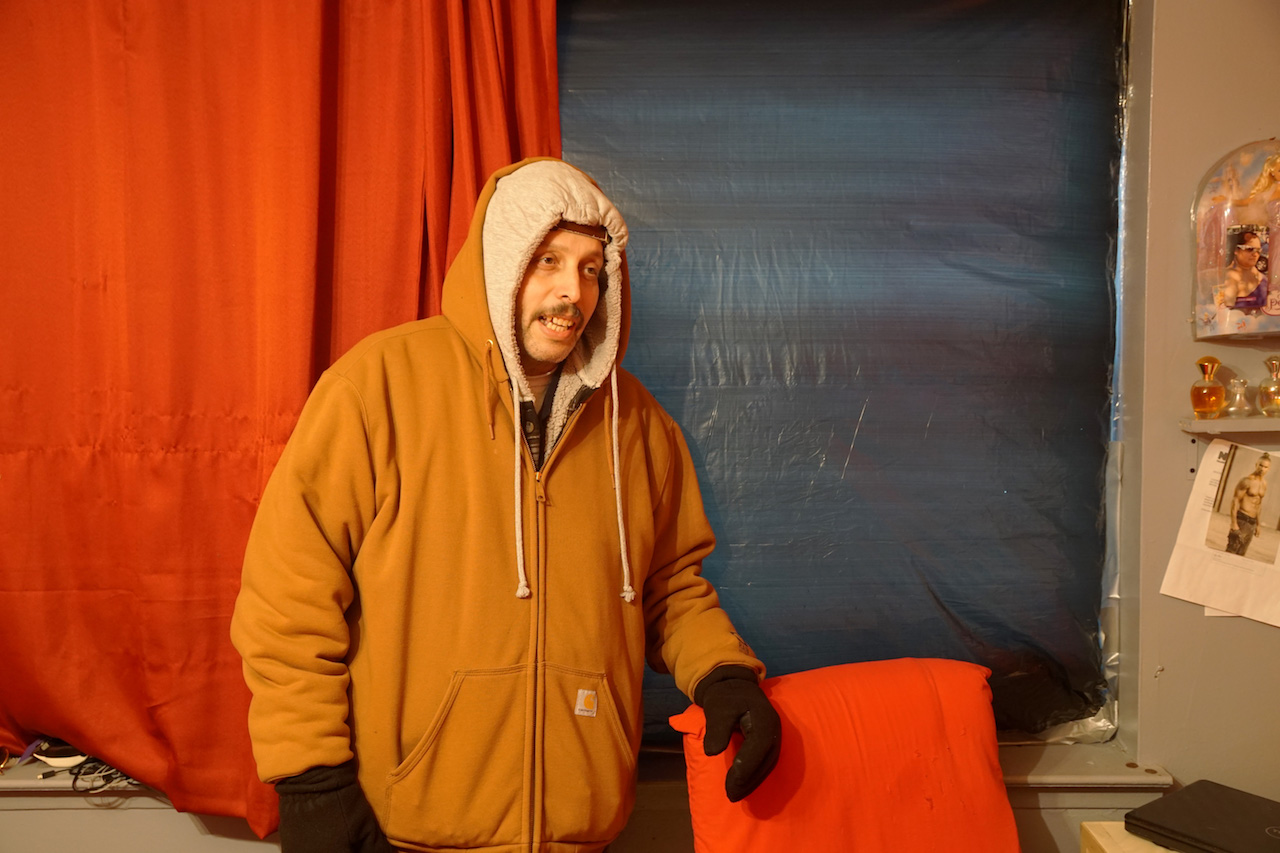
While most New Yorkers waited out record low temperatures from the comfort of their heated homes this holiday season, thousands of NYCHA residents braced against the single-digit cold with no such luck.
Residents in public housing complexes around the South Bronx called in “tickets” to their management offices to complain about the lack of heat in their apartments, only to have maintenance workers close them out without restoring the heat.
Stebbins-Hewitt Houses
At Stebbins-Hewitt, a low-rise development of 120 apartments in Longwood, residents complained shortly after Christmas that the gas boilers in their buildings had stopped working, cutting off heat and hot water. Tenant association president Ray Serrano says maintenance workers did not appear until January 5 when he called 911 to complain about the smell of gas in a boiler room.
Even then, he says, technicians did not know how to service the boilers and the heat remained off for 10 more days.
“They’re paying attention to a lot of the bigger developments, and we tend to fall off to the sidelines,” says Serrano, adding that residents commonly use stoves and space heaters to heat their apartments.
Jannette, 60, a resident who withheld her full name because she fears retribution from building management, says that she had no heat from December 26 until January 16. During those three weeks she would turn her stove on as soon as she returned from her job at a public school.
Another resident, Ylehany Espinal, 42, showed black plastic and duct tape she used to seal a bedroom window. Espinal says she sent in four tickets about the lack of heat.
“The temperature that’s outside, that’s my house,” she says.

Patterson Houses
At sprawling Patterson Houses in Mott Haven, a pipe burst and shut down the mobile boiler at E. 142nd Street and Morris Avenue, according to tenant association president Pat Simpson. NYCHA was slow to fix the problem.
“They claim they came out, but it was like two to three weeks before we started feeling the heat,” she says.
A technician checking on a mobile boiler on 143rd Street in mid-January, who would not give his name because he is not authorized to speak with the press, said that he splits time between Patterson and nearby Mitchel Houses because of understaffing.
Betances Houses
Three buildings at Betances Houses on E. 147th Street recently lost heat, according to the head of the tenant association, Giselle Gavin.
“It’s stressful, it’s frustrating,” says Gavin, noting that NYCHA often claims boilers are working properly even when residents feel no heat from their pipes. “If they take the time to come into the apartment to see, sometimes it’s under 50 degrees in the apartment itself.”
Jackson Houses
At Jackson Houses in Melrose, tenant president Danny Barber says that the boiler went down in late December. Since it came back online, residents have been complaining that they don’t have hot water, especially at the 3050 Park Ave. building.
Although the boilers are as old as the 54-year-old development itself, maintenance should be possible, says Barber, but NYCHA technicians often lack the proper parts and the know-how.
Melrose Houses
Jennie Cruz plays a video she took on her phone last summer. It shows water flowing over the sides of a condensate tank in Melrose Houses’ boiler room. NYCHA claimed to fix the tank last year, but fed-up residents say that was just a bandaid. The projects’ four boilers are well past their life expectancies, delivering heat sporadically and breaking down frequently.
Cruz says that it took a day and a half for the boiler to come back up after it failed just before New Year’s. She also recalls a Friday in mid-November when the mercury plunged to a record-low 27 degrees, but there was no heat due to a boiler malfunction. The boilers were repaired promptly but residents maintain that that they’re still not getting heat in some rooms.
Miriam Figueroa, 62, of the 304 E. 156th St. building, said that she has no heat in her kitchen or bathroom. On a December visit, the pipes in both rooms were cold. Her hot water is unreliable as well.
Cruz and other residents have been circulating a petition demanding replacement of the boilers, undeterred by the situation at Patterson Houses, where the boiler room has been condemned and temporary boilers parked on the street rarely work. Melrose Houses’ four boilers date back to 1952, when the eight 14-story buildings were built.
In a 2011 Physical Needs Assessment, NYCHA slated nearly $12 million for heating at Melrose Houses within five years. That window of time has come and gone, but boiler replacement has never made its way into a capital plan. For that, the Housing Authority blames a $25 billion capital shortfall, and says that it will only replace the boilers if they break.
“Our residents deserve safe, warm homes in the winter, and our staff works urgently to ensure any outages are resolved as quickly as possible,” said NYCHA spokesperson Jasmine Blake in a statement.
City Councilman Rafael Salamanca Jr., whose district takes in Melrose and Jackson Houses, says that despite the capital shortfall, the Housing Authority can—-and should—-replace the old boilers.
“Councilman Salamanca absolutely believes that boilers should be addressed immediately and is committed to securing funding to do so if that’s what it takes,” said Ryan Monell, Salamanca’s communications director.
Until then, says Miram Figueroa, “You never know when it’s gonna go. It might be good for a week. A couple of days, then boom, again.”

